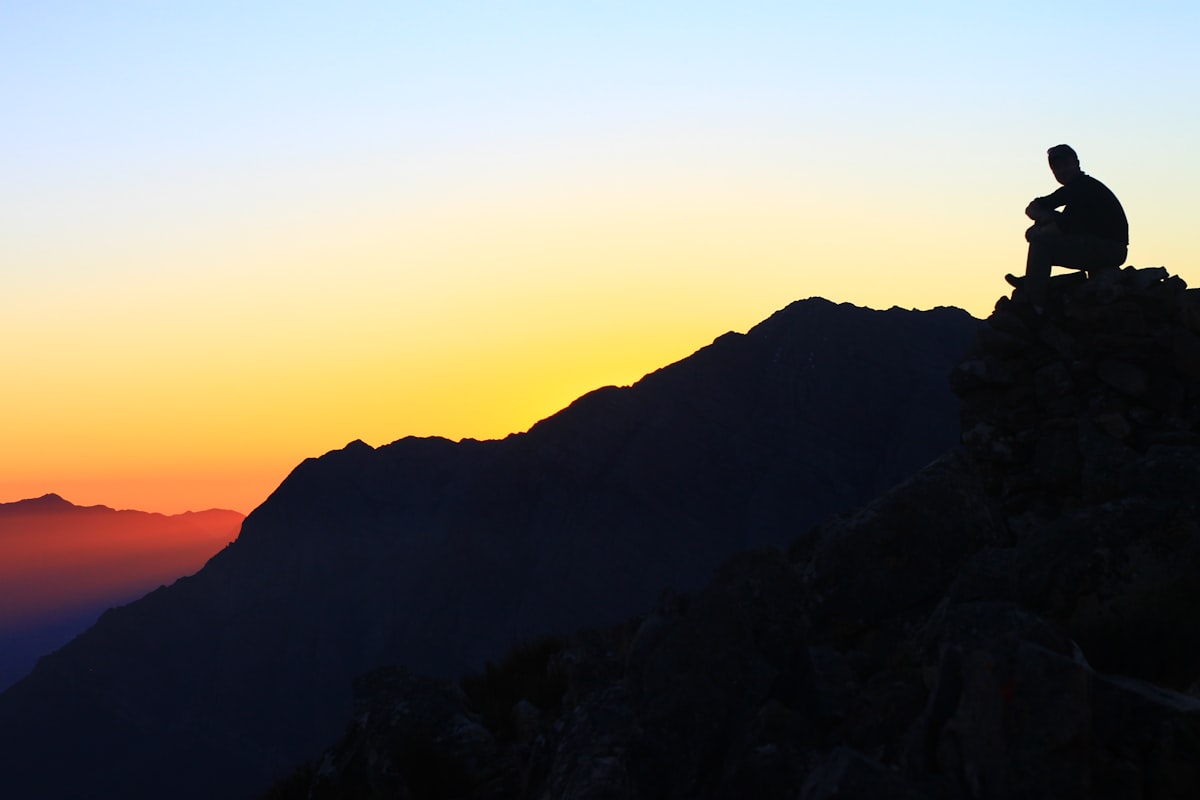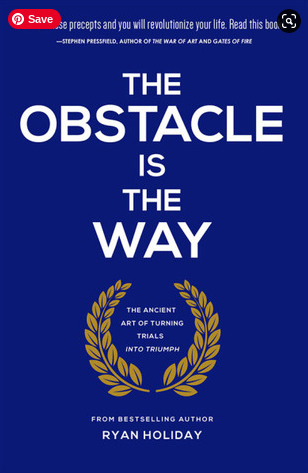The Obstacle is The Way | Book Summary and Golden Lines
This book is for anyone looking for ways to approach challenges and setbacks. It’s perfect for those in education.

As an Amazon Associate, I earn from qualifying purchases. All affiliate links are marked with an asterisk (*). Thank You! Read more here.
The Obstacle is the Way
Book Summary

I purchased The Obstacle is the Way* after the first Covid lockdowns occurred. I had been following Ryan Holiday on his site Daily Stoic for a while, long enough to see that the foundations of Stoicism had applications in teaching, my personal life, and during “pandemic” times.
It turned out to be one of those, “I picked up the right book at the right time” moments.
The Book in Three Sentences
- Every obstacle is an opportunity for personal growth.
- The Stoic principles of perception, action, and will provide a framework for overcoming obstacles.
- One of the most powerful things we can control is how we react to situations.
**Golden Lines (description and free resource) - These are some of my favorite lines from the book along with my reaction.
The Obstacle is the Way - Golden Lines and Reaction
Our actions may be impeded . . . but there can be no impeding our intentions or dispositions. Because we can accommodate and adapt.
We can control what we can control and that’s it. Good things and bad things will always happen. Time spent working on ourselves is time well spent. This work puts us in a position to create more good times and to weather the storms when appear.
“The things which hurt,” Benjamin Franklin wrote, “instruct.”
Instinctually we avoid things that cause us pain. Truth is, many of the most important lessons I’ve learned so far have come from painful moments. When tough stuff happens it’s important to feel it fully. It’s also important to let go of the pain and then look for the lesson.
One area in which this is applicable is after "teacher observations". It’s tough to hear someone tell you there are things you could be doing better. If you can get past your initial response, you’ll often find valuable lessons that you can apply for the remainder of your teaching career.
Not much time should be spent lamenting painful things.
It’s almost like you should set a timer. Feel all of the crappy feelings, but when that alarm goes off, do whatever you can to let go and move on.
We decide what we will make of each and every situation. We decide whether we’ll break or whether we’ll resist. We decide whether we’ll assent or reject. No one can force us to give up or to believe something that is untrue (such as, that a situation is absolutely hopeless or impossible to improve). Our perceptions are the thing that we’re in complete control of.
I highlighted this because I wanted to remember that in every situation I have some control. We can’t control everything, but we can control our perceptions and reactions.
Life is really no different. Obstacles make us emotional, but the only way we’ll survive or overcome them is by keeping those emotions in check—if we can keep steady no matter what happens, no matter how much external events may fluctuate. The Greeks had a word for this: apatheia.
Becoming too emotional can cloud our judgment and disrupt our ability to focus. Our best actions come from a place of calm and preparation.
You’ll find the method that works best for you, but there are many things that can pull you into the present moment: Strenuous exercise. Unplugging. A walk in the park. Meditation. Getting a dog—they’re a constant reminder of how pleasant the present is. One thing is certain. It’s not simply a matter of saying: Oh, I’ll live in the present. You have to work at it. Catch your mind when it wanders—don’t let it get away from you. Discard distracting thoughts. Leave things well enough alone—no matter how much you feel like doing otherwise.
These are good tips. I’ve found that walking provides the most bang for my buck. It feels like meditation, but it also gets me moving outside.
What is defeat? Nothing but education; nothing but the first steps to something better. —WENDELL PHILLIPS…
My PE teacher friend tells his students, “There are only winners and learners”. It's not a loss if you take the lesson with you.
How you do anything is how you can do everything. We can always act right.
Right action takes practice. With more practice comes regularity. Eventually, the practices become habits. The practice allows things to become automatic, and with each new habit you have on autopilot you create a larger compounding effect.
You don’t convince people by challenging their longest and most firmly held opinions. You find common ground and work from there. Or you look for leverage to make them listen. Or you create an alternative with so much support from other people that the opposition voluntarily abandons its views and joins your camp.
This connects to the political climate in our country today, and how we are all so divided. It’s hard to change someone’s mind. There is more common ground to explore than people realize. Maybe we can convince more people to start there.
You’ll have far better luck toughening yourself up than you ever will trying to take the teeth out of a world that is—at best—indifferent to your existence.
This is just a good reminder. I revisit it often.
Finally…
See things for what they are. Do what we can. Endure and bear what we must. What blocked the path now is a path. What once impeded action advances action. The Obstacle is the Way.
This book is for anyone looking for ways to approach challenges and setbacks. It’s perfect for those in education. Reading this book has helped me navigate pandemic teaching and helped me in my personal life too.

The Obstacle is the Way by Ryan Holiday
Focusing exclusively on what is within our power magnifies and enhances our power.
Thank you for reading and good luck on your Journey. Here is the Book Notes archive if you'd like to check out some of the summaries and Golden Lines of other books I've enjoyed.



